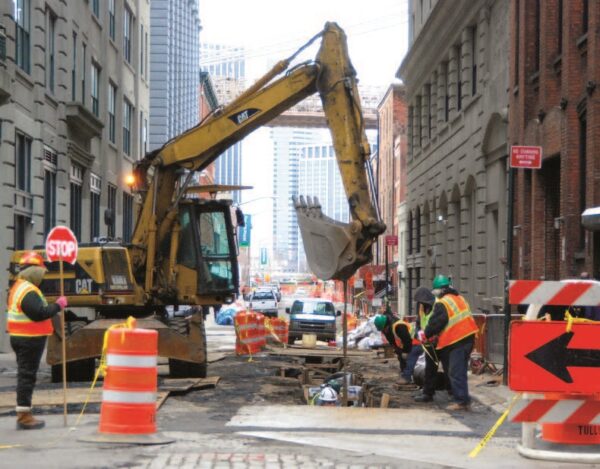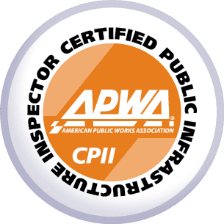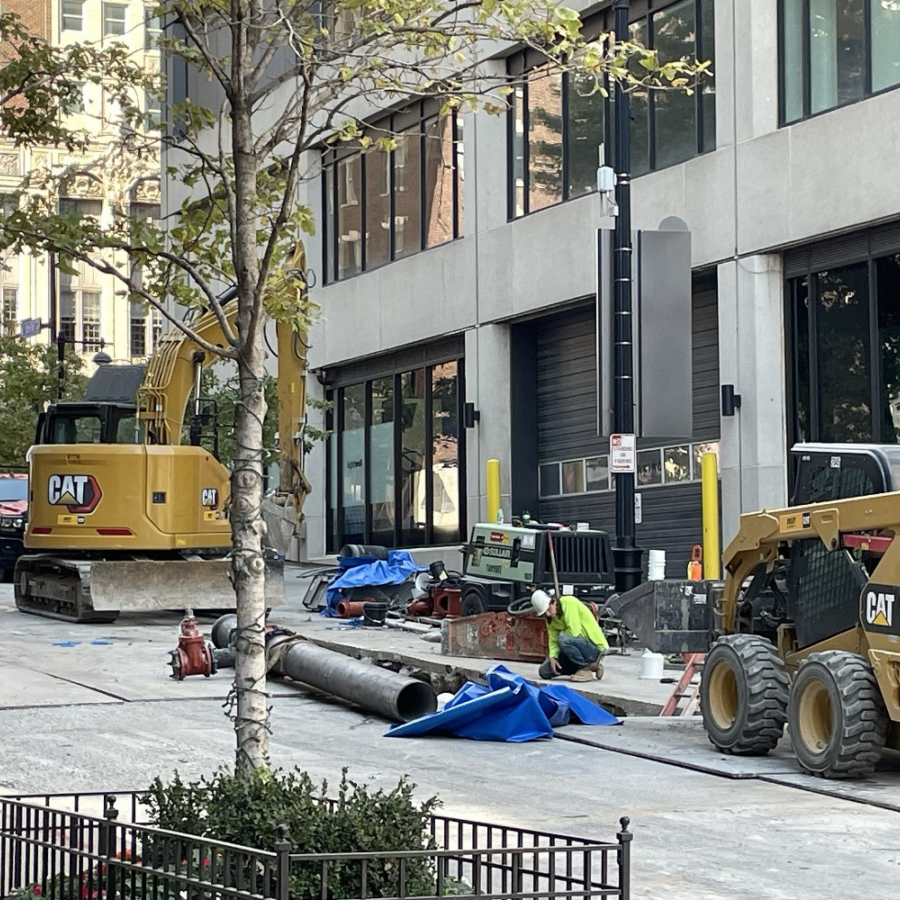Committee News
Benjamin Lucha
Chair, APWA Utilities and Public Rights-of-Way (UPROW) Committee
 The Utilities and Public Rights-of-Way (UPROW) Committee continues to monitor and address the evolving challenges that affect the management of utilities and public rights-of-way, critical components of safe, reliable infrastructure and thriving, sustainable communities. As cities grow and technology advances, UPROW plays a vital role in helping public works professionals stay informed and prepared.
The Utilities and Public Rights-of-Way (UPROW) Committee continues to monitor and address the evolving challenges that affect the management of utilities and public rights-of-way, critical components of safe, reliable infrastructure and thriving, sustainable communities. As cities grow and technology advances, UPROW plays a vital role in helping public works professionals stay informed and prepared.
With rising demand for broadband and the challenges of utility coordination, UPROW is looking to launch a working group focused on permitting and fiber optic cable installation. This work group will bring together public works experts from across the country to share best practices, tackle common challenges, and explore smart permitting strategies. If your agency is seeing a surge in fiber-related right-of-way requests, we’d love to have you join the conversation. Please email UPROWC@apwa.yokoco.dev if you are interested in joining.
If you’re looking to flex your utility and rights-of-way management skills, take part in the UPROW-themed escape room at PWX Chicago. A team of public works professionals has 60 minutes to solve field-related challenges and restore order, safety, and efficiency to the city’s utility system. This escape room focuses on real-world UPROW challenges: utility coordination, permitting, right-of-way management, restoration standards, and public communication—using principles from APWA’s UPROW best practices. It’s a fun, fast-paced way to put your problem-solving skills to the test while learning strategies you can apply back home and a great way to get to know the UPROW Committee. Sign up here.
The committee will soon be releasing the UPROW Infographic, a helpful visual guide to the complex world of rights-of-way, from underground utilities to permitting and maintenance.

As the demands on our infrastructure continue to grow, UPROW remains committed to equipping public works professionals with the tools, knowledge, and connections they need to succeed. Stay connected with the UPROW Committee, take advantage of these upcoming resources and opportunities, and help shape the future of utility and rights-of-way management.
Trending Resources
Public Works Benchmarks: Transportation and Rights-of-Way Management
APWA conducted a pilot benchmarking survey in 2022 of 150 agencies across the United States. This document presents a detailed overview of key metrics pertaining to transportation, roadway, and rights-of-way management, providing insights into the operational dynamics and resource utilization within these organizations.
Memorials in the Right-of-Way
Members of different agencies across the country will outline how they address memorials in the right-of-way. This recorded session will outline how agencies can ensure the safety and well-being of all while also allowing those affected by deaths in the right-of-way to grieve in their own way.
Leveraging Digital Transformation for Effective Right-of-Way Management
Discover how digital tools are revolutionizing right-of-way management by streamlining communication, reducing delays, and eliminating inefficiencies across agencies and contractors. This recorded session shares proven insights from a successful digital rollout with the Florida Department of Transportation, demonstrating how real-time coordination can transform road disruption planning and public engagement.
The Unhoused—This Can Be a Public Works Challenge
Homeless encampments in public spaces pose growing challenges for public works professionals tasked with maintaining essential infrastructure and services. This recorded session explores the health, safety, and operational impacts of encampments in the right-of-way, offering real-world insights from public and private sector perspectives.
APWA Guide: Uniform Temporary Marking of Underground Facilities
This guide seeks to inform the public works community, its professionals and practitioners, policymakers, and decision-makers at all levels of government, and the public at large about uniform temporary marking of underground facilities.
Policymaker Primer: Public Works and ROW Management
Policymaker Primers supplement APWA’s official Public Policy Priorities, providing additional information and context for issues tangential to emergency management, transportation, and water resiliency.

Partners and Collaborations
August 11 is 811 day—a timely reminder to always contact 811 before starting any digging project to have underground utilities marked. Whether you’re installing a mailbox or breaking ground on a major construction project, contacting 811 helps prevent accidents, outages, and costly repairs. Our partners at Common Ground Alliance have gathered tools and resources to help communities manage or partake in campaigns promoting 811. View the toolkit here.
Certification
 Put yourself on the path to completing the Certified Public Infrastructure Inspector (CPII) certification program in 2025!
Put yourself on the path to completing the Certified Public Infrastructure Inspector (CPII) certification program in 2025!
Becoming CPII certified allows you to demonstrate your expertise and proficiency in the inspection of public infrastructure (e.g., roadways, highways, utilities, bridges, dams) and facilities (e.g., pump stations, treatment plants, water storage facilities) and other types of construction work and materials. There are approximately 432 individuals who have achieved the CPII certification through APWA, and the numbers keep going up.
If you’re thinking about joining this number, start by listening to a fellow public works professional who has achieved CPII certification. Read Joseph Jakubik’s article, “How attaining the Certified Public Infrastructure Inspector helps a public works inspector do his job.” According to Jakubik, “the CPII exam is well worth the effort to obtain. It is a respected certification in the public sector and a sought-after certification in the private sector.”
